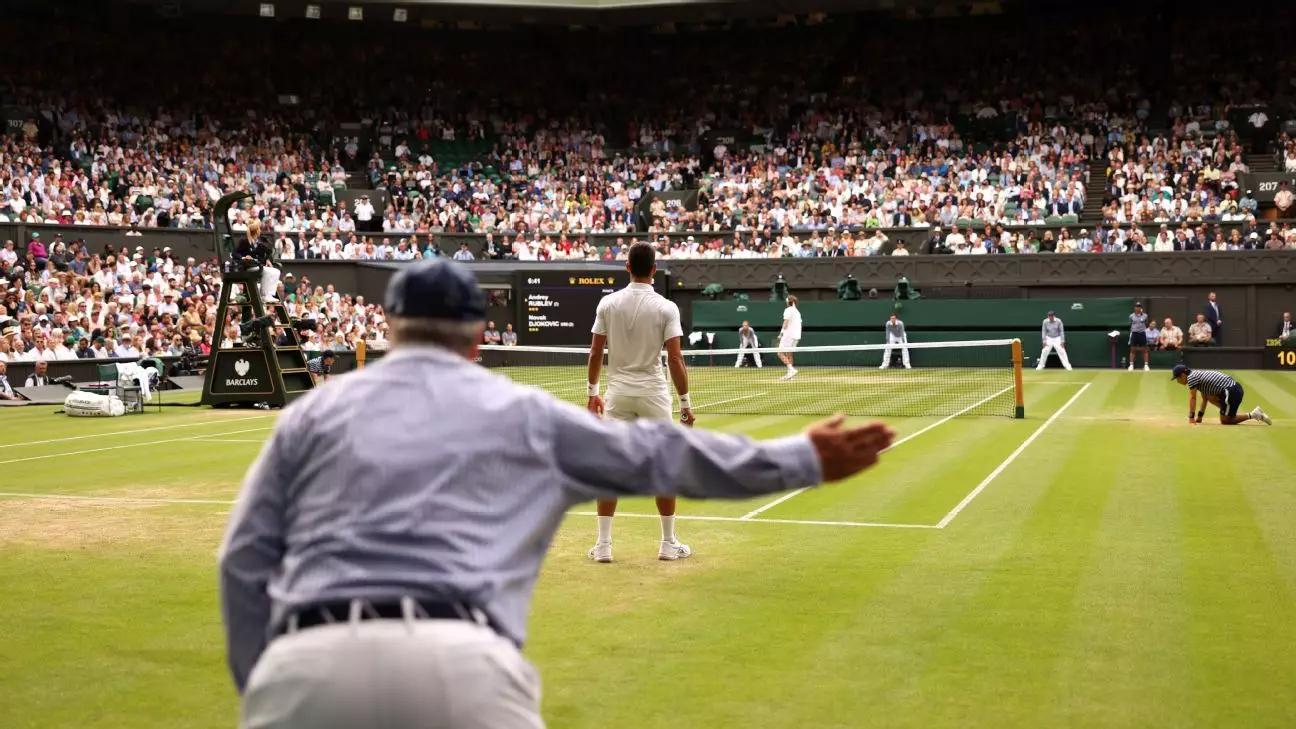In a landmark decision, the All England Club has announced the removal of human line judges for the 2024 Wimbledon Championships, opting instead for a system powered by artificial intelligence. This radical shift, marking the first time in 147 years that no human official will be on the courts judging line calls, raises important questions about the future of sports officiating and the balance between tradition and technological advancement. This change is reflective of a broader trend in sports where technology is increasingly relied upon to ensure accuracy and fairness.
Automated electronic line-calling will be in place across all 18 courts at Wimbledon next year. This system, which utilizes Hawk-Eye technology, has been tested and implemented in various professional tournaments, notably making its debut at the US Open in 2020. Since then, it has grown in popularity, leading to its planned expansion on the ATP Tour starting in 2025. The elimination of human line judges means that players will now hear automated voice calls for line judgments, streamlining the officiating process but also fundamentally altering the role of officiating in tennis.
Sally Bolton, the CEO of the All England Club, emphasized the club’s careful consideration in making this decision, indicating a thorough review of testing results from previous tournaments. Bolton argues that the introduction of AI will enhance officiating accuracy, aligning Wimbledon with the conditions players have come to expect at other events. However, this decision challenges the essence of Wimbledon as a bastion of tennis tradition. Line umpires have long been a vital part of the tournament’s officiating, and their removal marks a significant cultural shift that may not sit well with every fan or player.
While the integration of AI may improve accuracy and efficiency, it also prompts a worrying pivot away from the human element in sports officiating. The question remains: will players adapt to a fully automated system? Will they miss the interaction and presence of line judges who were not just arbiters of the game but also a part of its theatricality? For fans, witnessing the dynamics of human officiating has always added a layer of excitement to matches, as the tension surrounding contentious calls and appeals brought an additional narrative to the game. The absence of this narrative could create a more sterile viewing experience.
Looking Ahead: Adjustments to Future Finals
In conjunction with the switch to electronic line-calling, the All England Club also announced that both the men’s and women’s singles finals will begin later in the day, with provisional start times set for 4 p.m. local time. This scheduling change reflects an effort to enhance the overall experience for players and spectators alike, allowing for a grander atmosphere as these championship events unfold under the evening sky.
As Wimbledon navigates this transformative phase, one thing is clear: the tournament is at the crossroads of tradition and modernization. The introduction of AI for line calling signifies a bold step forward, but its acceptance will largely hinge on the reactions of players, officials, and fans alike as they adjust to a new era of the sport.

